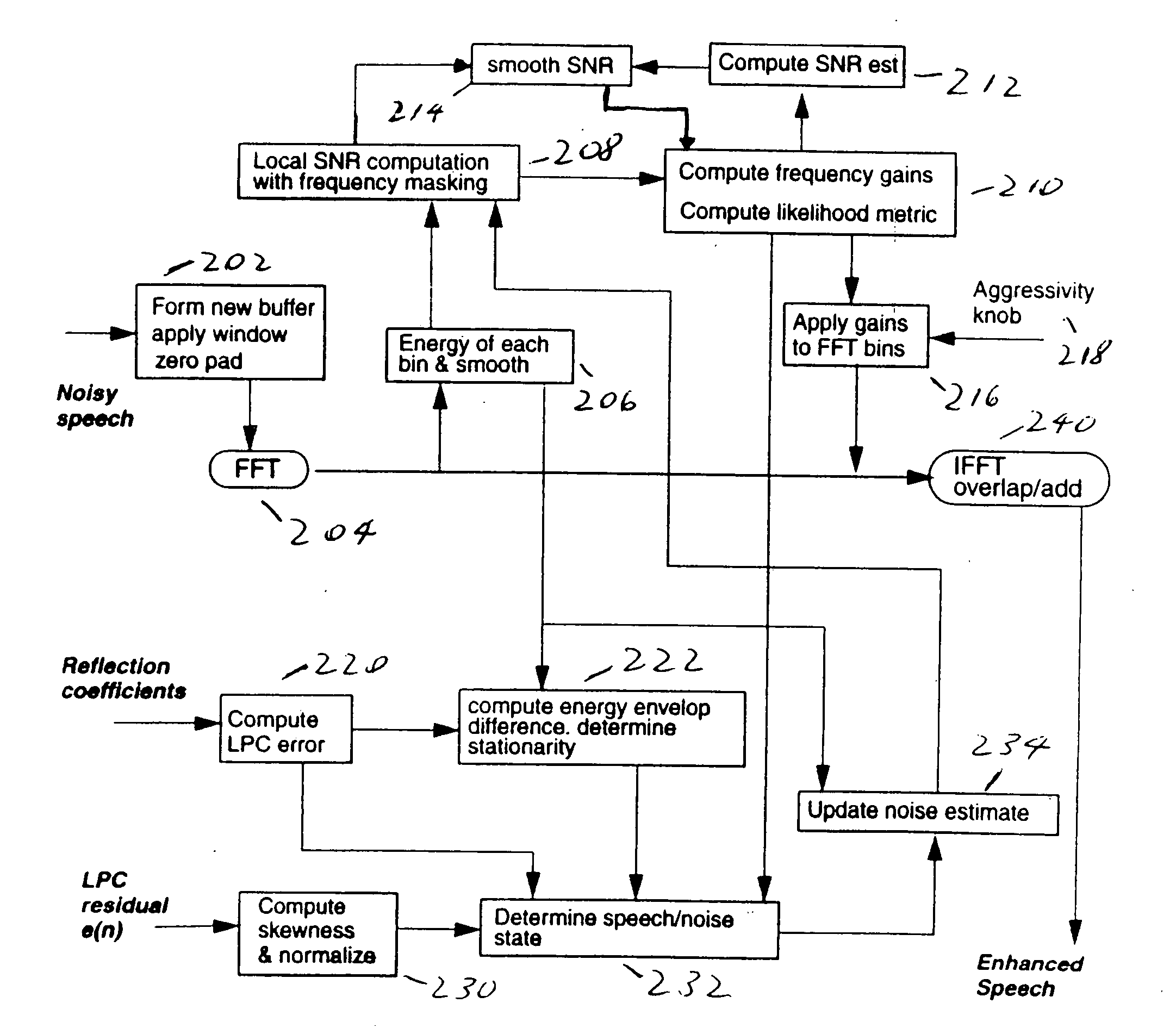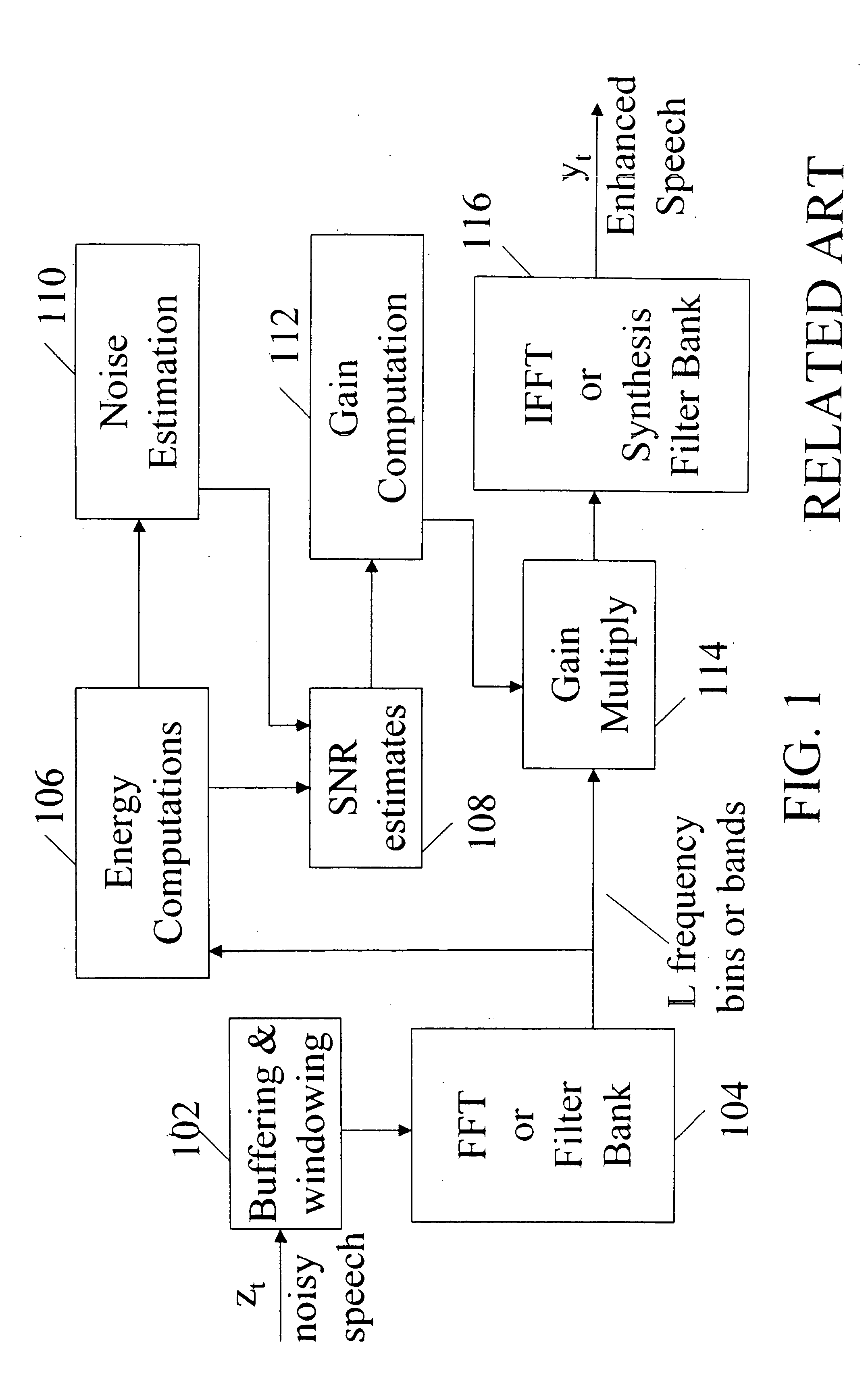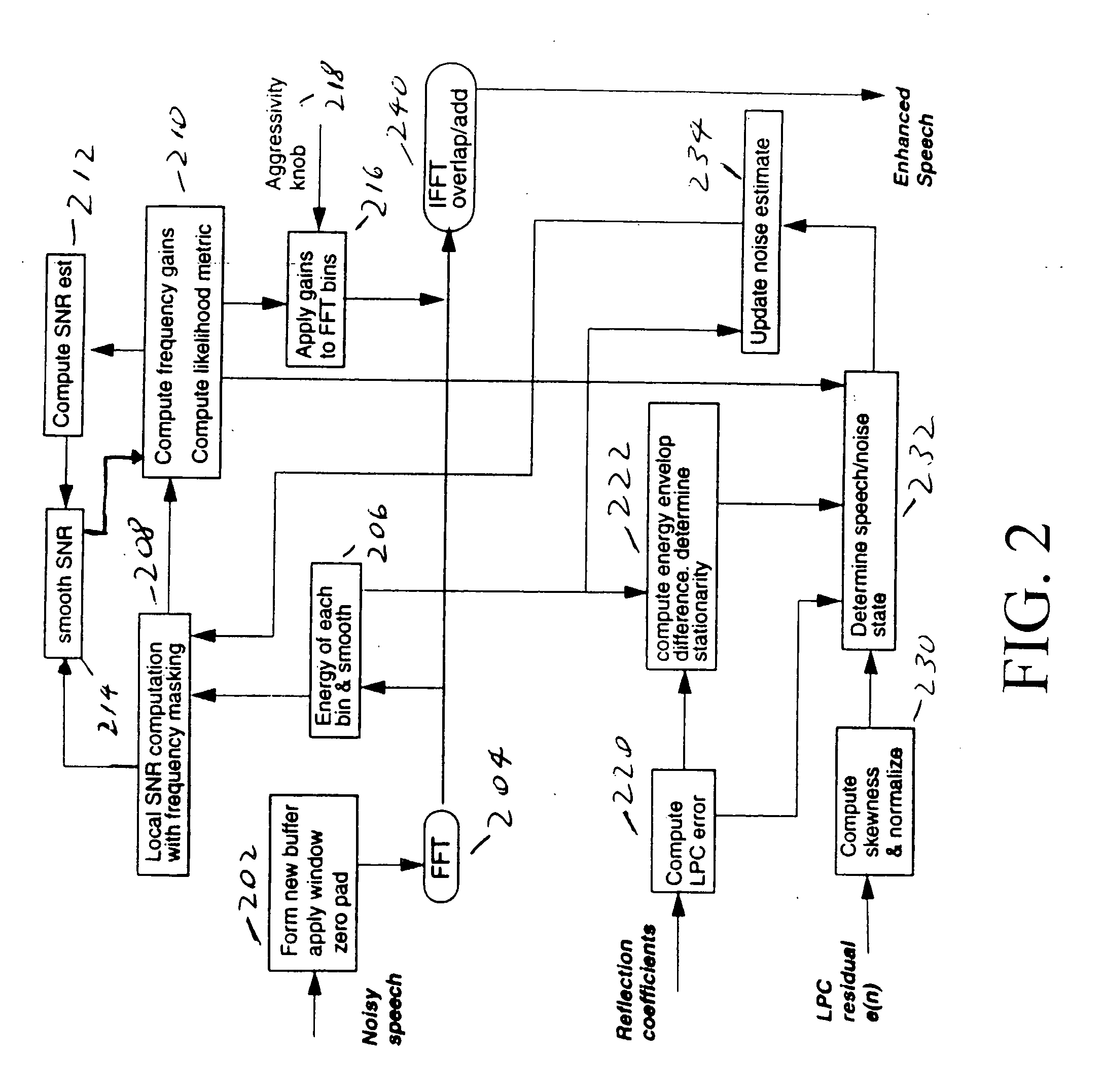Method of and apparatus for reducing acoustic noise in wireless and landline based telephony
a wireless and landline based telephone and acoustic noise technology, applied in the field can solve the problems of degrading the perceived sound quality and intelligibility of speech transmitted over a wireless or landline based telephone line, affecting the perception of sound quality, so as to achieve the effect of reducing acoustic nois
- Summary
- Abstract
- Description
- Claims
- Application Information
AI Technical Summary
Benefits of technology
Problems solved by technology
Method used
Image
Examples
Embodiment Construction
[0032] The invention is an improvement of the known spectral subtraction and scaling method shown in FIG. 1 and achieves better noise reduction with reduced artifacts by better estimating the noise level and by improved detection of non-speech frames. Additionally, the invention includes a non-linear suppression scheme. Included are: (1) a new non-linear gain function that depends on the value of the smoothed SNR and which corrects the shortcomings of the Wiener filter and other classical filters that have a fast rising slope in the lower SNR region; (2) an adjustable aggressiveness control parameter that varies the percentage of the estimated noise that is to be removed (A set of spectral gains are derived based on the aggressiveness parameter and based on the nominal gain. The spectral gains are used to scale the FFT speech samples or points, and the nominal gains determine the feedback loop operation.); (3) non-speech frames are determined using at least one of four metrics: (a) ...
PUM
 Login to View More
Login to View More Abstract
Description
Claims
Application Information
 Login to View More
Login to View More - R&D
- Intellectual Property
- Life Sciences
- Materials
- Tech Scout
- Unparalleled Data Quality
- Higher Quality Content
- 60% Fewer Hallucinations
Browse by: Latest US Patents, China's latest patents, Technical Efficacy Thesaurus, Application Domain, Technology Topic, Popular Technical Reports.
© 2025 PatSnap. All rights reserved.Legal|Privacy policy|Modern Slavery Act Transparency Statement|Sitemap|About US| Contact US: help@patsnap.com



